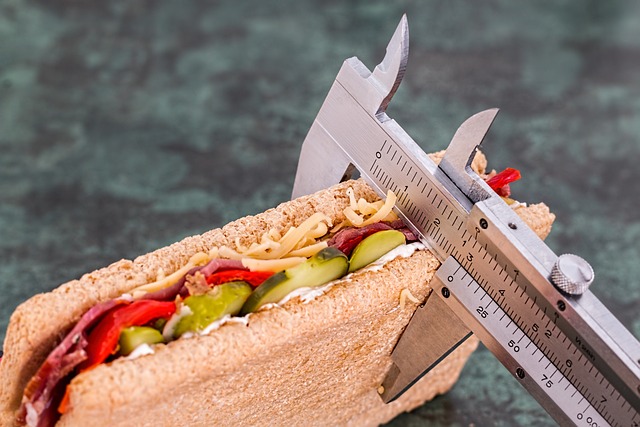




The basic premise of intermittent fasting includes switching between the spans of eating and not eating. Many people use it as a weight loss strategy, yet scientists point out that the fasting schedule could do wonders for your cholesterol, inflammation (if you have any) and yield other positive health outcomes.
Which intermittent fasting plan will benefit you the most? The answer depends on your body type, lifestyle, and what you want to gain. Take the quiz and find the best option for you!
Intermittent fasting is more than just skipping a meal here and there. Its also not a diet but rather an eating pattern because it focuses on when you eat and not the type of food you eat. It involves periods of not eating that could be as long as 24 hours, interjected with periods when you just eat like you would normally.

Your body processes the carbs and sugar you consume into glucose. Its the prime source of energy for all your organs and tissues. When you stop consuming carbohydrates, your body must burn the body fat for fuel, thus entering the state of ketosis. Your glucose levels decrease and allow you to lose weight efficiently. Intermittent fasting improves metabolism and blood pressure and lowers the risk of chronic diseases.
The 16:8 method means fasting for 16 hours and consuming food like always for 8 hours. You consume your calories in the eight-hour window and abstain the rest of the time. You can still have water, herbal tea, coffee without sugar, sugar-free gum, or diet soda. As long as your calorie intake equals zero during the sixteenth-hour period, it’s okay.
If you want to lose weight or gain muscle effectively (or both), the 16:8 plan might be the most beneficial. The typical recommendation for 16:8 is to do it twice a week, with the eating period from 12 PM to 8 PM. However, it depends on what you can handle and what schedule suits you.
Many following 16:8 (even daily) report having more energy, sleeping better, and losing weight painlessly. Still – if you’re a novice, you might want to start with shorter fasts.
This plan calls for a 14-hour fast followed by a 10-hour eating stretch. You can sleep for most of the fourteenth-hour window. That’s why it’s accessible for many people just starting their intermittent fasting journey. This option is a frequent proposition for women because going too long without eating can affect the menstrual cycle.
A healthy diet is crucial during the eating window, so watch out for binging and don’t consume too much sugary or fatty foods. If you can’t achieve your weight loss goal with 14:10, upping the fasting period to 16 hours is worth considering.
It’s one of the least extreme and most flexible IF methods – perfect for beginners. You restrict food for 12 hours and eat for another 12. 7 hours of sleep per day means you will only be fasting for 5 hours. As with other plans, you can drink water, zero-calorie tea, or coffee, but no food.
The 12:12 approach will help you kickstart the autophagy process. Its when your body removes damaged cells and regenerates new ones. If you want to detox, rejuvenate, boost immunity, and get a little “power up,” look no further. However, if your primary intent is to lose weight, 12:12 may not be as effective as more strict plans. Still, it can help to reduce calorie intake and enhance metabolism.
What is your metabolic type?
If you want to drop weight, improve gut health, and even sharpen your cognitive functioning, 18:6 could be for you. It involves not eating for 18 hours and normal calorie intake for 6 hours. People who do 18:6 notice pronounced weight loss results, better digestion, mental clarity, and reduced inflammation.
A typical fasting schedule involves eating from 12 PM to 8 PM. If you need breakfast, you can eat around 9 AM and start your fast at 3 PM. 18:6 generally only allows for two meals during the eating window, so plan carefully according to your needs and lifestyle.
The main tip for this plan is to stick to the schedule, keep busy, and stay positive. When you can eat, pick nutritious foods. If you find 18:6 too challenging, start with a more sustainable plan, like 12:12 or 14:10.
What diet plan is best for you?
If you’re busy but still want to fast, try the 5:2 or the Fast Diet. It means abstaining from food or reducing calorie intake for two days out of the week, which are not consecutive, and consuming a normal diet for the remaining five days.
It’s a flexible plan, and you can work it into a hectic schedule. 5:2 might not bring you results as dramatic as other methods, but it has impressive health benefits. It may help reduce insulin levels, prevent cardiovascular diseases, or improve blood pressure.
What about weight loss? The 5:2 method works well when done right. It may aid in the reduction of that pesky belly fat. It could also help preserve muscle mass while losing weight – vital for those who want to keep an athletic physique! When following the 5:2 plan, it’s important not to overcompensate with calories on non-fasting days.
The ideal IF plan should take into account your health objectives, daily routine, and what you can realistically achieve. Take our intermittent fasting quiz to find the best IF method for you. Good luck!